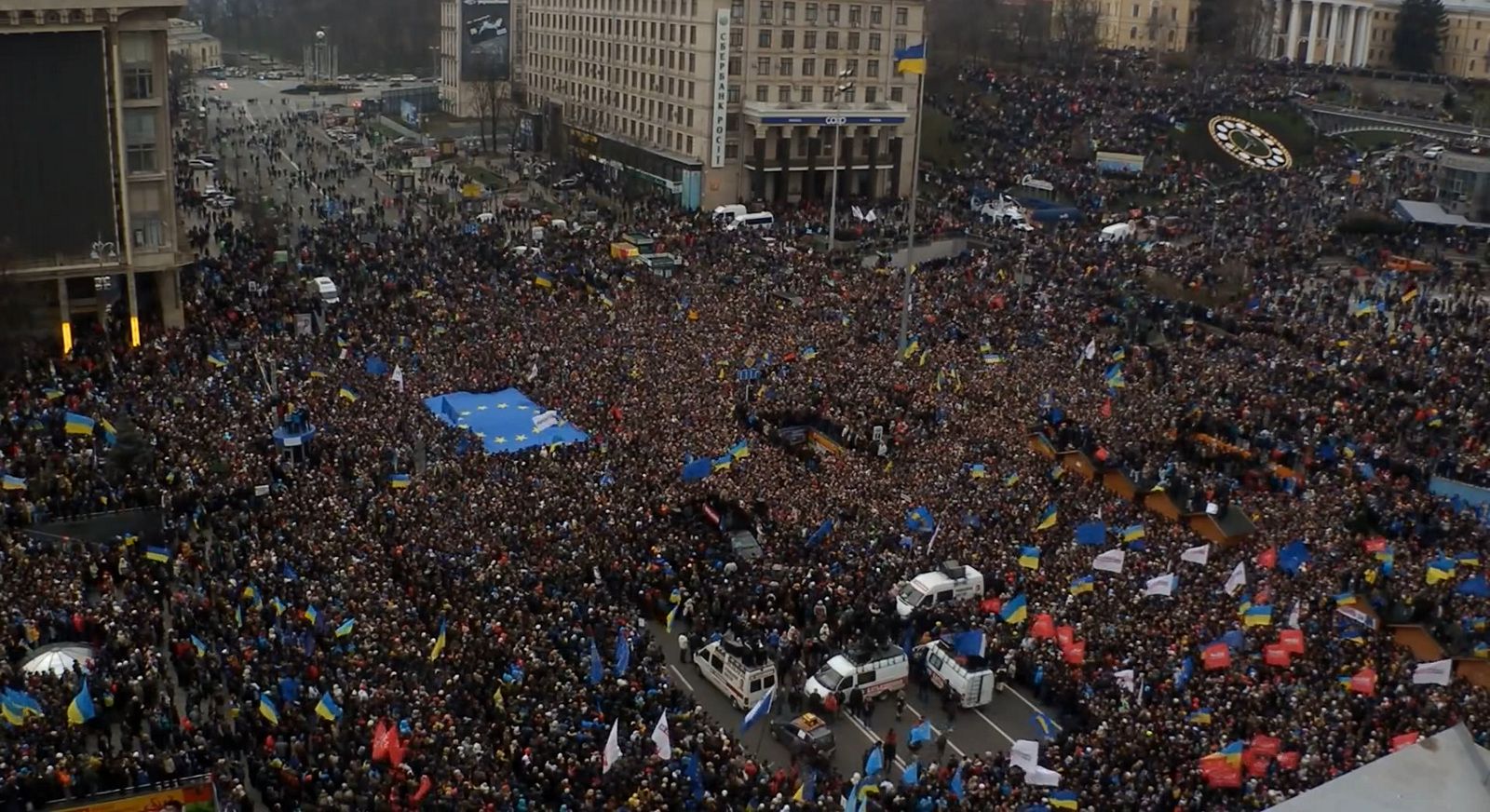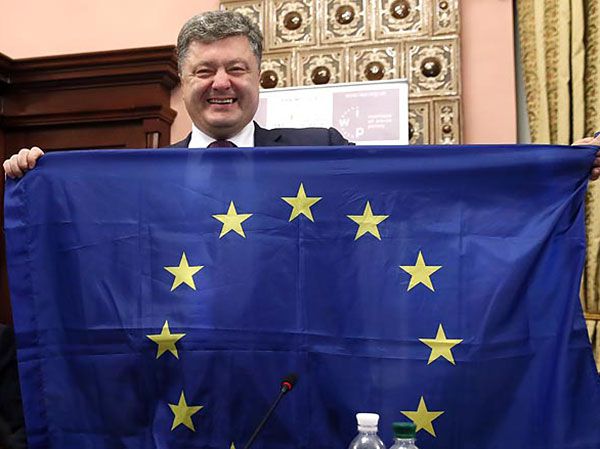Table of Contents
The most important in the EU for the majority of Ukrainians is not the “space of law” but the “area of welfare”. The events that led to the growth of “euro skepticism” in Europe are not realized by the Ukrainian society. However, the “earthly paradise” has cracked. Exit of Britain made the EU internal crisis too visible. The biggest challenge of the Brexit for Ukraine is the threat of destruction of the extremely attractive for Ukrainians image of the European Union as justice communism or “Promised Land.”
By Maksym Palamarchuk. Originally published by ТЕКСТИ.org.ua, translated by Lilia Tiazhka for UaPosition
The global crisis that began with uprisings in the North Africa and the Middle East and continued with the aggression of the Kremlin, overturned from the periphery to the center of the world system.
See also: Russian aggression against Ukraine, international law and global security: 25 key theses
It has become ultimately clear that the era of liberal-democratic “end of history” 1991 – 2007 is over. Search for a new point of equilibrium creates a significant political and economic turbulence that equally threatens states, large corporations and ordinary citizens. Instead of stability and predictability everybody faces the threatening unknown.
More than a million Ukrainians took a part in the protests in 2013 demanding the pro-Russian President Yanukovych to continue the European integration
What are the consequences of “Brexit” for Ukraine, which stability has ended already in the autumn of 2013?
What will be after the “European dream”?
The biggest challenge of “Brexit” for Ukraine is the threat of destruction of the extremely attractive for Ukrainians image of the EU as some kind of “promised land.” The prospect of getting to this “earthly paradise” gave strength to our citizens to endure the difficulties of changes. This willingness was used by all the Ukrainian governments, “pushing” reforms that did not provide a quick return.
Successfully exploiting the Ukrainians’ desire “to Europe,” Ukrainian establishment played on the “rosy illusions” of ordinary citizens. Ukrainian Presidents and Prime Ministers did not try to prepare them for the controversial reality of the interaction with European institutions, not to mention the preparation of the ideological alternative in case if “euro illusions” dispel.
See also: ‘Does Ukraine need nationalism’ – discussion with Anne Applebaum
It’s no secret that for Ukrainians the more important feature of the EU was not the “space law” but the “territory of welfare” with the high standard of living supposedly guaranteed for everybody regardless of his efforts. These ideas more or less have successfully survived despite the “debt crisis” and “economy measures” in the EU.
Relevant events that actually led to the growth of the “euro skepticism” in Europe were not properly realized by the Ukrainian society. Politicians continued to transmit cloudless “euro optimism”. In Ukraine, “Europe was criticized”, and mainly for the “spiritual vacuum”, mostly by followers of the “Russian World”.
However, with “Brexit” is a different story. “Earthly Paradise” has cracked. Exit of the Great Britain made the EU internal crisis too visible. So is it worth to fight for such a dream? Especially when Ukrainians finally realize that they will be only “neighbors” of the EU at least for a few decades.
See also: Ukraine feels let down by EU with visa deal elusive
Every crisis creates both risks and opportunities. Destruction of the “European illusions” can enhance the society’s apathy and the already high propensity of the Ukrainian society to swallow “sweet poison” of populists.
On the other hand, if the Ukrainians find the strength to work together not to make life “very good” but to “make the necessary “, the loss of faith in the “magician from a blue helicopter with yellow stars” will be the necessary step of the political nation’s growing up.
Due to the geographical location and cultural affiliation the European integration has no alternatives for the modernization of Ukraine. But it is not a panacea, but only a tool of the realization of national interests, that will be able to be used only by a strong and effective Ukrainian state.
Problems of a military ally
Britain helps Ukraine not only with the political support, but also with an active contribution to the development of our Army. In the difficult period after the retreat from Debaltsevo in early 2015, the arrival to Ukraine armored vehicles «Saxon» and the appearance of British military instructors in Mykolaiv was an important signal to the aggressor, and to Ukrainian soldiers.
British elite led were risky game, seeking better conditions in the EU, threatening with the exit referendum but could not keep aroused by them the “genie” of the populism.
Now Britain will have to overcome the economic consequences of the exit and will face a challenge to preserve its own territorial integrity.
See also: Parliament of Ukraine ratifies agreement with UK on defense cooperation
Controlled by supporters of independence the Scottish regional government immediately declared the need for a re-vote about the exit from the United Kingdom, because most Scots supported EU.
Internal problems and need of intensive negotiations with the “continental” Europe can drag away resources of the British government from providing military assistance to Ukraine.
However there is another scenario. To compensate the damage from “Brexit” for the country’s international prestige, Her Majesty’s Government can go for decisive steps, for example for agreed with the new US President supply of lethal weapons to Ukraine. But the main factor here, for obvious reasons, will be the US position.
“Pro-Russian” EU? Fragmented EU!
Many experts warn that the exit of Britain from the EU will strengthen there the influence of the pro-Russian lobby. To some extent they are right. Countries living with the memory of the successful economic cooperation with Russia in the resource boom times will probably achieve a certain easing of sanctions if the Kremlin does not make new large-scale military adventure.
But Moscow’s desires are simply incompatible with the national interests of Germany, whose influence in the EU after “Brexit” will increase. Therefore, “total betrayal” of Ukraine from Europe will not take place.
To survive, the EU without Britain has to change much. Beginning from 2005 on referendums in member states win “Euro skeptics”, the influence of the certain political parties on EU governments is growing. Too much internal pressure is caused by the same formal rules, for example for Danish and Bulgarian economies.
The inhabitants of richer countries don’t want to help poor countries. After the euphoria of the accession the citizens of new EU members realize the social cost of economic competition with stronger players.
Considering the lack of European solidarity and the natural desire of governments to preserve their powers is hardly possible a new dash to the centralization of the EU, which is urged by Germany and France. On the contrary, the idea of “multi-speed Europe”, which has begun to be discussed during overcoming of consequences of the global economic crisis, will take institutional framework.
See also: EU ”will die” – French presidential candidate Marine Le Pen after Russia visit
The intense internal dialogue in the EU will not help its foreign policy activity. The already “slowed down” response to various challenges that tensed at the borders of the European Union from the Moroccan Rabat to the Russian Murmansk evolves further towards the empty diplomatic declarations.
The power vacuum will be forced fill with the regional blocs and individual countries – leaders with which Ukraine will have to negotiate separately.
With the exit of Britain and its powerful armed forces that have significant combat experience, already illusory dream of a “European army” will finally disappear. NATO will remain the “military guard” of the European continent without alternative.
Problems with adaptation of new members, the need for deep transformation and the development of “new game rules” will stop the enlargement process. Possible exception is a demonstrative preparation for the adoption to the EU a new country for the purpose of visual confirmation of its viability. But this can be a candidate unless one of the smaller countries of the Western Balkans (Serbia or Montenegro), but in no way Ukraine.
See also: Dutch to demand limits on Ukraine deal at EU summit – Dutch Prime Minister Mark Rutte


